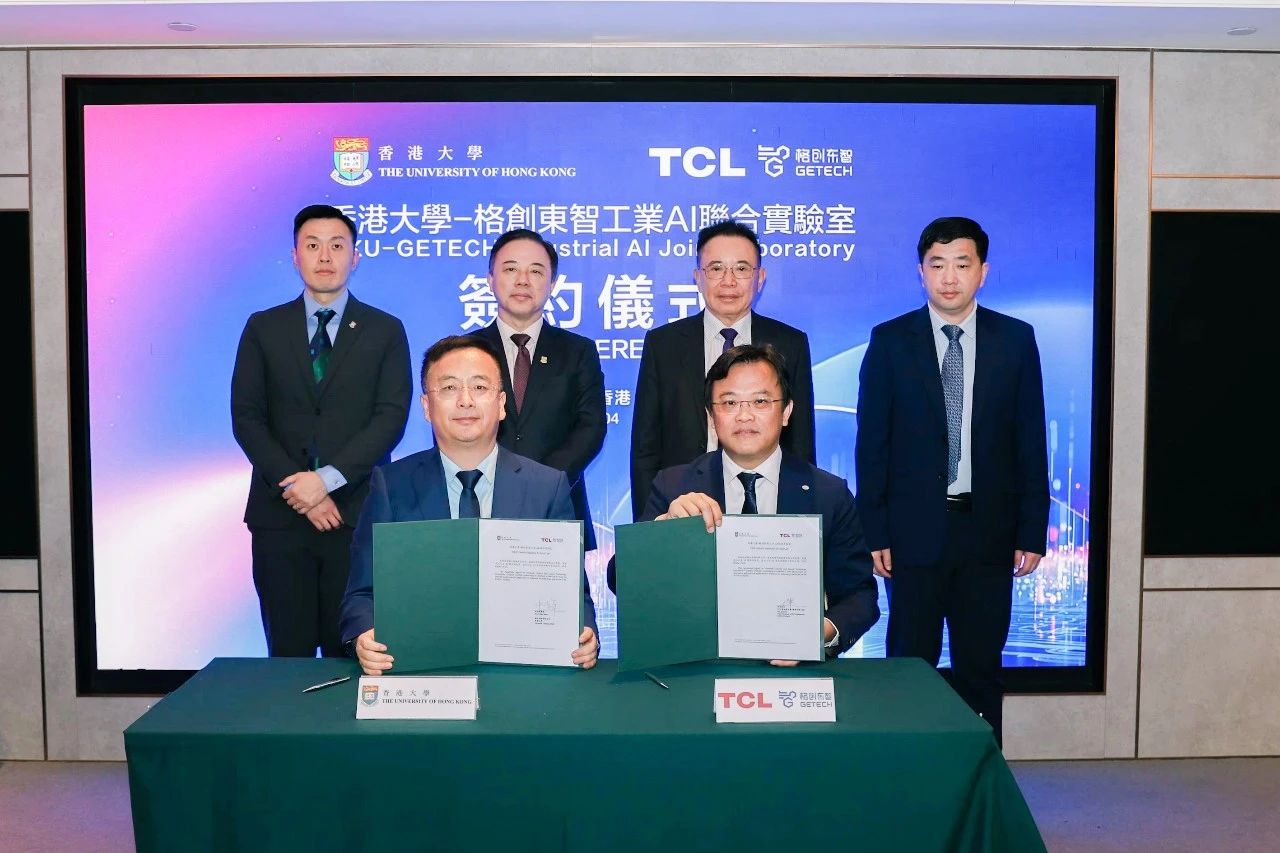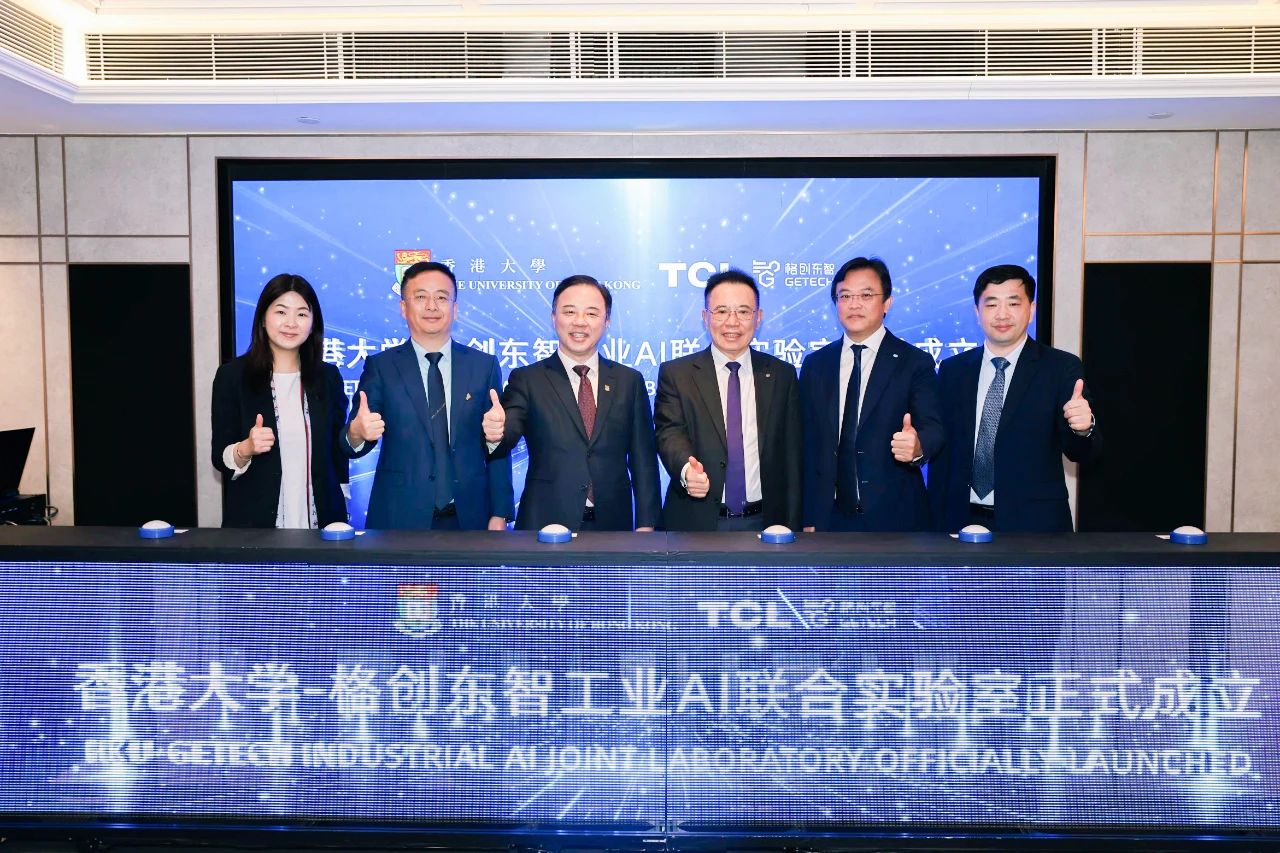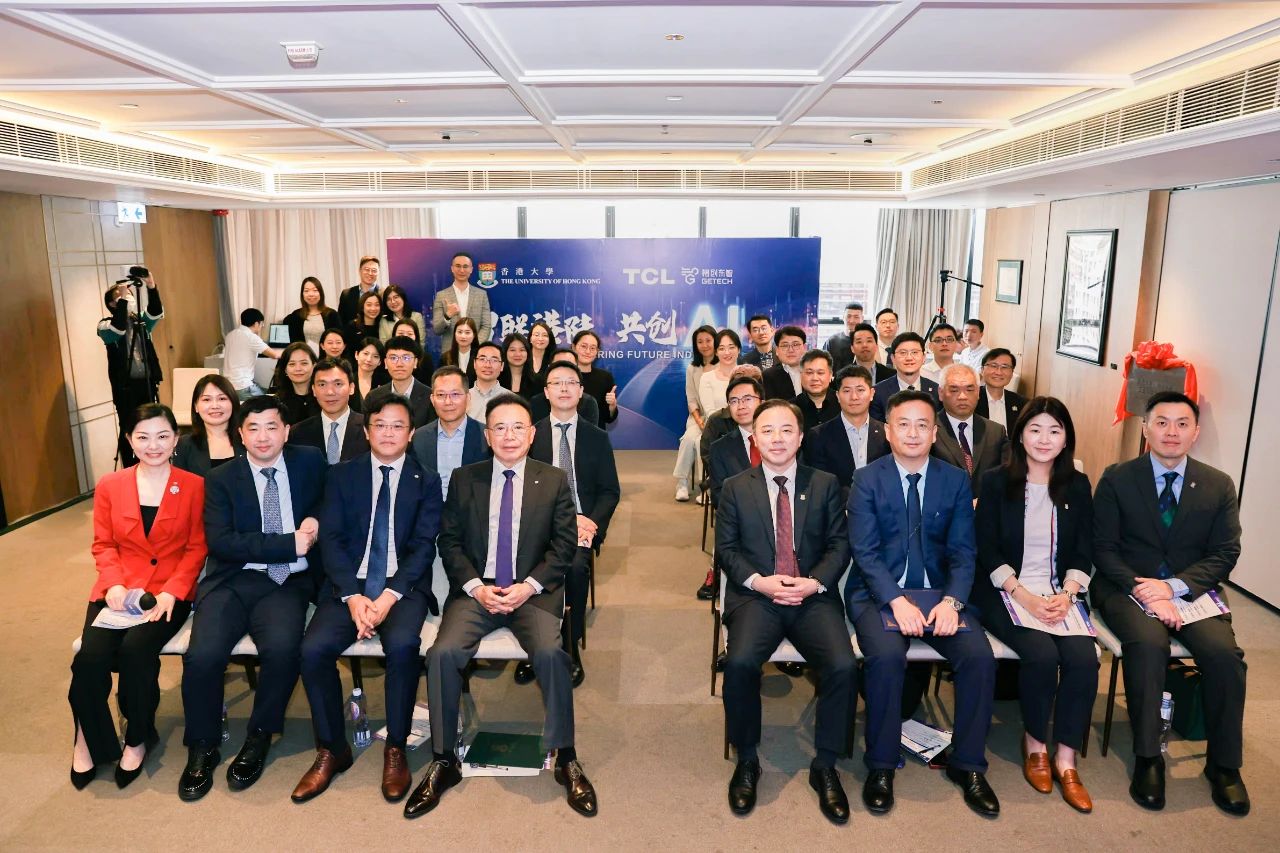GCHD and University of Hong Kong Establish Industrial AI Joint Lab to Elevate Hong Kong as Global Innovation Hub
![]() 04/17 2025
04/17 2025
![]() 432
432
On April 16, GCHD and the University of Hong Kong (hereinafter referred to as HKU) inked a cooperation agreement to establish the "HKU-GCHD Industrial AI Joint Laboratory" and appointed Professor Shen Zuojun, HKU's vice president (research), as honorary chief scientist. This lab will seamlessly integrate HKU's AI research expertise with GCHD's industrial AI applications in advanced manufacturing, focusing on "innovation and practical application of industrial AI technology." This initiative marks another significant step forward in industrial AI technology after GCHD's recent iteration of its Octopus Agentic AI platform. For the first time, GCHD consolidates the entire chain of industrial AI R&D, scenario verification, and commercialization in Hong Kong, reflecting optimism about Hong Kong's international hub status and a forward-looking strategy for overseas expansion.

The signing ceremony took place at HKU, attended by Professor Zhang Xiang, HKU's president, and Li Dongsheng, founder and chairman of TCL, who both delivered speeches. Other attendees included Professor Shen Zuojun, HKU's vice president (research); Professor Ma Guiyi, HKU's associate vice president (research and innovation); He Jun, TCL Industry's vice president and GCHD's CEO. The event garnered attention and coverage from multiple Hong Kong media outlets and investment institutions.

GCHD plans to invest tens of millions of Hong Kong dollars over five years for the laboratory's construction and operation, focusing on innovation and practical application of industrial AI technology. Research areas will encompass supply chain operations optimization engines, AMHS intelligent material handling scheduling systems, agent and super automation applications, AI large models, and industrial big data platform development.

Professor Shen Zuojun, appointed as GCHD's honorary chief scientist, will serve as the director of the Industrial AI Joint Laboratory Management Committee, overseeing the implementation of research and development projects. As HKU's vice president in charge of scientific research, Professor Shen also holds esteemed positions such as academician of the Hong Kong Academy of Engineering Sciences, fellow of INFORMS and POMS, and has made substantial contributions in operations research and optimization. In his closing remarks, he emphasized that this collaboration will leverage HKU's research strengths and TCL's industry expertise to create a globally influential laboratory, propelling the progress of China's and the world's manufacturing industry and supply chain.
The laboratory's inaugural research project, the AMHS Intelligent Material Handling Scheduling System, is a joint effort between HKU's research team and GCHD's AMHS team. The objective is to accelerate technological breakthroughs in GCHD's AMHS business segment, enabling AI algorithms to schedule thousands of OHT cranes, significantly boosting domestic substitution. Upon successful application, this project can be rapidly replicated in semiconductor manufacturing clusters in Malaysia, Vietnam, and other regions, reducing the cost of intelligent transformation for local enterprises.

Indeed, the TCL Industrial Research Institute, GCHD, and HKU have already collaborated on the transformation of scientific research results into projects and products like supply chain AI under the Hong Kong government's "Industry-University-Research 1+ Plan" (RAISe+). This plan could provide funding of up to hundreds of millions of Hong Kong dollars to support the healthy and sustainable growth of research projects in Hong Kong. This model not only offers a replicable path for intelligent upgrades in the manufacturing industry across Southeast Asia and the globe but will also create hundreds of new research positions, nurturing industrial AI technical talents for Hong Kong.
Looking ahead, the comprehensive development of GCHD's industrial AI scientific research achievements and business empowerment will help establish Hong Kong as a prominent industrial AI innovation hub. Simultaneously, the synergistic drive of policy, capital, and technology will bolster the industrial AI supply capacity and global leadership of both parties.








